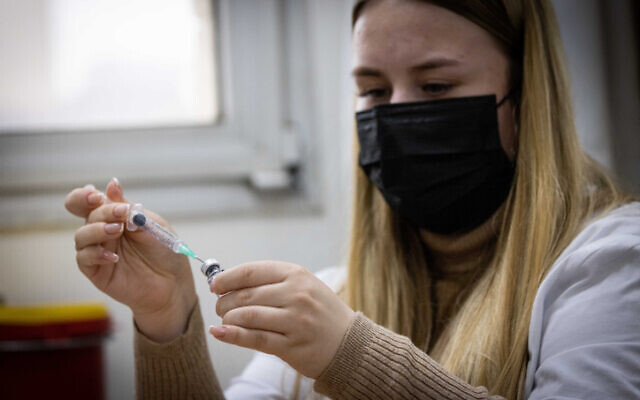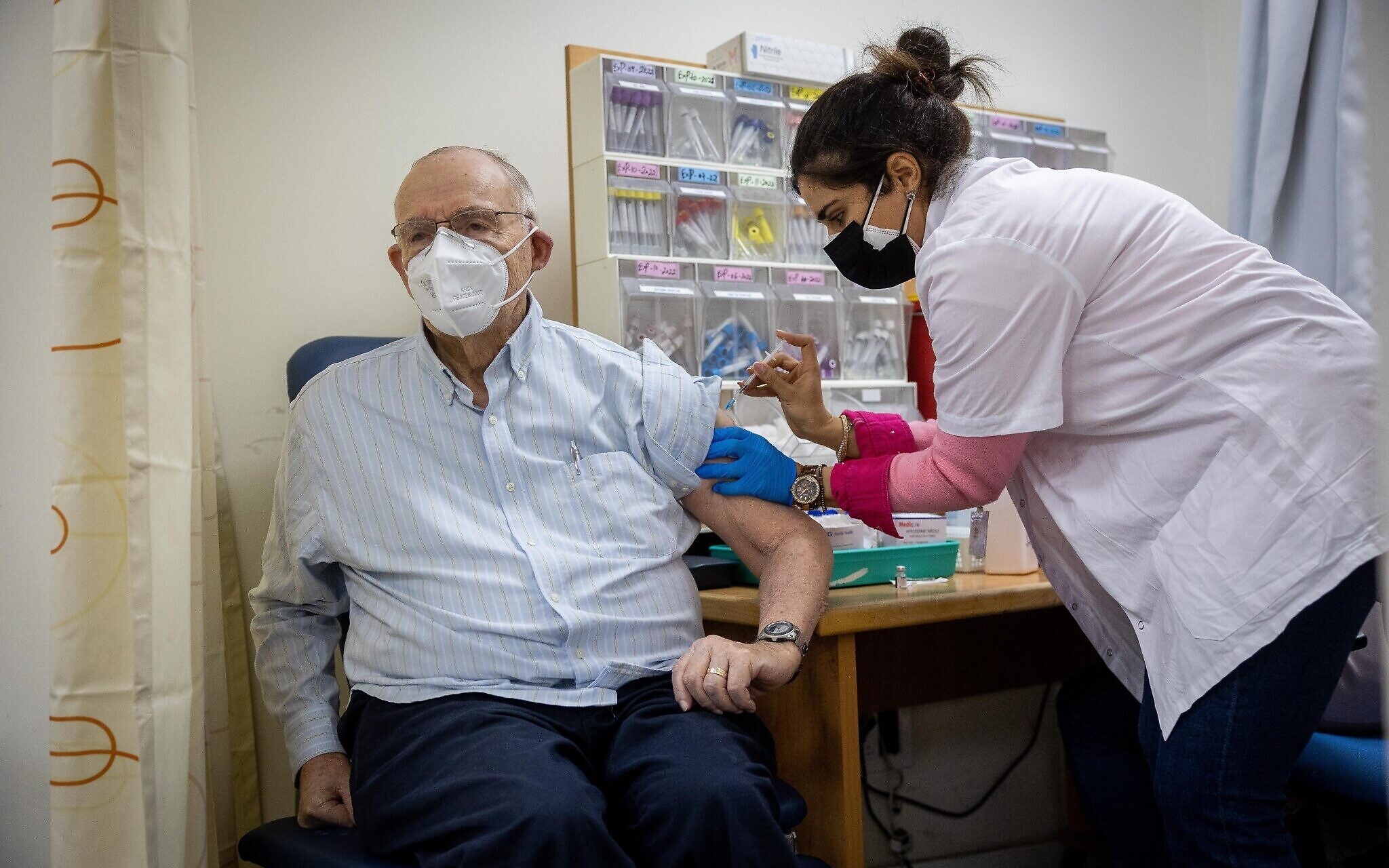Israeli study: Omicron-fighting boosters cut hospitalization in over-65s by 81%
Largest investigation of the new COVID shots suggests they also sharply reduce deaths, calling them ‘an effective and essential tool’; research is not yet peer-reviewed
Nathan Jeffay is The Times of Israel's health and science correspondent

New Omicron-fighting COVID booster shots have delivered an 81 percent reduction in COVID hospitalization to Israelis aged 65-plus, according to recently released research.
The study, on the updated Pfizer shots that were released in the summer, found that they have reduced the risk of death in this demographic by some 86%. However, as there was only one death among those who took boosters, this figure is considered a less reliable indicator of effectiveness than the hospitalization statistic.
The research, posted online on January 3 but not yet peer-reviewed, is the world’s first large-scale assessment of the “bivalent” shots that have been enhanced against variants.
However, it doesn’t shed any light on how much more effective the new vaccines are compared to the original vaccines, before their anti-Omicron update.
Instead, it addresses the more practical question being asked in countries where bivalent shots are the new standard and where older people are being encouraged to boost regularly, like Israel and the US. It examines the level of protection people gain when they take a booster compared to those who don’t and who rely on earlier vaccines instead.
“The message is that if you are 65-plus, getting a booster can give you additional protection,” Dr. Ronen Arbel, an author of the study, told The Times of Israel on Monday. “This extra protection adds to that of earlier shots and could keep you out of the hospital and save your life.”
He said that while the study focused on Pfizer vaccines, it is also a cause for optimism regarding Moderna’s, as the technology is similar and the shots tend to have similar effectiveness.

The study called bivalent boosters “an effective and essential tool” for reducing the risks of COVID death and illness among the 65-plus age group. Arbel said it has “global relevance,” and hopes that it emphasizes the value of boosters to policymakers and members of the public.
He added that it intentionally didn’t explore infection rates, “because today the primary objective and importance of vaccines isn’t avoiding infection but rather reducing severe disease and death.”
Arbel, a researcher at Clalit and at Sapir College, is part of a group of scholars whose earlier studies were consulted by vaccine policymakers in the US before they approved the third and fourth shots. It is run by Clalit Health Services, Israel’s largest healthcare provider.

For their new study, the scholars analyzed anonymized data of all Clalit members aged 65-plus who received initial COVID vaccines — more than 500,000 people. They compared hospitalizations and deaths between those who have and haven’t boosted since September 24, when updated vaccines became standard in Israel.
The study has been posted in an online repository run by the Lancet, a leading medical journal, especially for content that hasn’t yet been peer-reviewed. The results were adjusted for a variety of mortality risk factors, in order to neutralize possible biases that could arise from differences in age, sex, socioeconomic status, or co-morbidities.
Dr. Doron Netzer, head of the medicine department at Clalit and one of the study’s authors, said that the research is encouraging given that the bivalent vaccine was introduced with limited data on its effectiveness.
“The vaccine was approved by the US Food and Drug Administration in an emergency procedure without efficacy studies being conducted regarding prevention of serious disease. Therefore, there is uncertainty in the world about its usefulness.
“The results of the study we conducted show unequivocally that the Omicron vaccine is significantly associated with reducing the risk of mortality from hospitalizations and mortality from the coronavirus, including many of the current strains of the Omicron.
“The results show that the decision of the Israeli Health Ministry to recommend giving an additional dose of vaccine to the elderly population prevented many hospitalizations and even deaths from the coronavirus. Publication of the research findings can contribute to convincing the population at risk to complete this beneficial vaccine,” he said.









